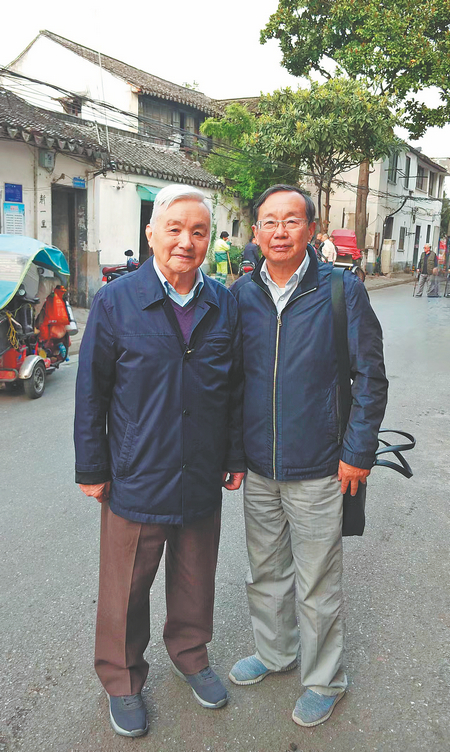Opening a door to a timeless world
By ZHAO XU in Suzhou | CHINA DAILY | Updated: 2024-05-30 07:44

"Look at the shadow the bamboo groves cast on the wall — so evocative of washed ink splashed across a piece of white silk," says Ruan Yongsan, a local preservationist. "The compound was a hybrid, a marriage between the architectural styles of the north and the south. It also epitomized the potent mixture of culture and commerce, for which Suzhou has been known, especially during the past 500 years."
According to Ruan, in history, the spreading of Kunqu Opera was greatly assisted by the commercial exchanges between Suzhou and the rest of China, which led to its profound impact on other Chinese operatic forms, including Peking Opera.
However, despite being called "the ancestor of all (Chinese) operas", Kunqu was actually the darling of the elite class: one needs to be well versed in classical literature to be able to relish its deeply poetic lyrics.
"For most of us, it has always been pingtan," says Ruan.
Literally meaning "to recount and sing (to the strings)", pingtan has blended several Chinese narrative musical traditions, and enjoyed such sustained popularity in Suzhou over the past centuries that many local residents in their 50s and above had grown up either watching live pingtan performances, or listening to their radio broadcast — or both.
The ageless tales, inspired by a combination of history and legend, were recounted in the Suzhou dialect, with the raconteurs' unique voices representing, for many young listeners, their initiation into the magical world of storytelling.
Among the art's young followers is Hu Shuning. While pursuing her studies overseas in 2007, the language student missed her hometown of Suzhou so much, that she sought out online programs teaching the local dialect just to listen. Later, when she decided to become a Suzhou dialect coach herself around 2014, she found herself under the tutelage of some professional pingtan artists.
"These days, there are people among my students who choose to learn the dialect in order to have a deeper appreciation of pingtan," she says.
























